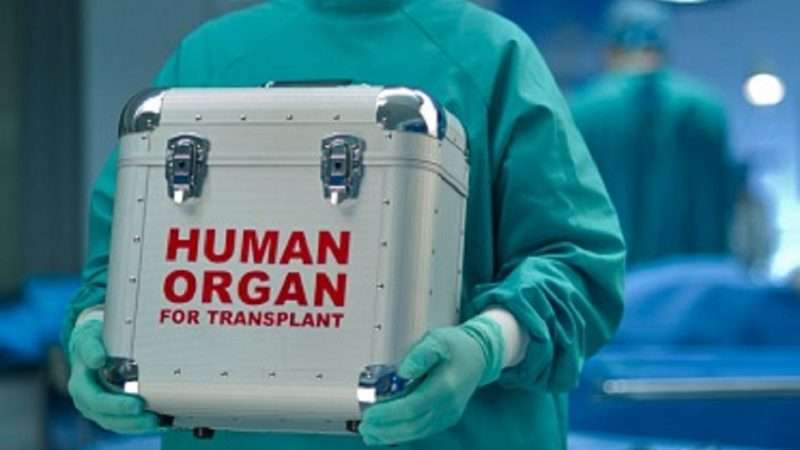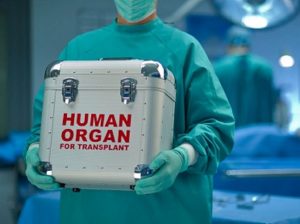

The United States has a severe shortage of kidneys available for transplant. As a result, many thousands of people die every year, and thousands more are condemned to years of painful and costly kidney dialysis until they are finally able to get off the waiting list for organs. Recently, organ transplant organizations have been attempting to alleviate perceived racial disparities in access to organ transplants through policies that in some ways increase the role of racial considerations in deciding who gets priority in the transplant queue, and in other ways reduce it.
Both have attracted the ire of Dr. Stanley Goldfarb, a prominent conservative advocate and commentator on health care policy. Some of his objections seem sound, whereas others contradict principles of color-blindness that "anti-woke" conservatives rightly advocate in other contexts. But both he and his left-wing opponents in these debates ignore by far the best way to alleviate kidney shortages for patients of all races: legalizing organ markets.
Goldfarb summarizes the proposed race-related policy changes and his reasons for opposing them in a recent City Journal article:
The Organ Procurement and Transplantation Network (OPTN) and the United Network for Organ Sharing (UNOS) are implementing new policies to make skin color a crucial factor in who receives life-saving kidney transplants. The shift is perhaps the most dangerous victory for wokeness in health care to date.
In the name of "equity," UNOS and OPTN purport to be expanding black patients' access to kidney transplants. They essentially claim that the longstanding system for such transplants is racist, pointing to how black patients make up 30 percent of the dialysis population and transplant wait list but receive a smaller fraction of kidney transplants….
UNOS and OPTN… are forcing transplant centers to rework the waitlist for cadaveric kidneys in such a way that favors black patients. The rationale is that the longstanding formula used to estimate kidney function, which was race-conscious and required a second calculation for black patients, was racist.
Yet this second calculation was necessary to produce an accurate value for kidney function in black patients. Without it, the measure would be highly inaccurate, dramatically underestimating kidney function. (Research shows that people of African-American descent tend to have higher levels of muscle mass compared with other population groups, which can affect the levels of creatinine, a waste product produced by muscles, in their blood. Creatinine is used as a marker to estimate kidney function in GFR equations, including the MDRD equation; however, African Americans may have higher creatinine levels even if their kidney function is normal.)….
Many black patients previously regarded as ineligible for the transplantation waitlist will now be listed, and some will even be moved ahead of others already on the waiting list…
OPTN is also preparing, in the name of equity, to abandon its longstanding pledge to those who selflessly donated a kidney to a loved one or even to a stranger through a matching program. Currently, these courageous donors are listed at the top of the transplant waiting list should they ever require a transplant. Donating a kidney does not increase the risk of developing kidney failure, so the need is unlikely. Yet this was the only compensation for the charitable act allowed by law. And it helped reassure donors, many understandably worried about the possibility of needing a transplant of their own.
Five times as many whites as blacks donate kidneys, which means that many more whites enjoy this benefit. Activists therefore see it as racist, and they want OPTN to change its policies. The group is considering four proposals; all would eliminate prior donors' waitlist priority and give them a mere 10 percent–15 percent improvement on their waitlist position.
In the name of anti-wokeness, Goldfarb here objects to a proposal that would actually reduce the consideration of race in determining who is eligible for a kidney transplant. This is pretty obviously at odds with traditional conservative support for color-blind government policy and condemnation of the "woke" for promoting race-consciousness. The new OPTN formula for estimating kidney functioning is actually race-neutral, whereas the old one explicitly took race into account, in a way that penalized black transplant candidates. Advocates of race-neutrality should welcome this change, not complain about supposed "wokeness."
Admittedly, one could argue that this is one of the very rare cases where racial discrimination may be justified because there are genuine physical differences between racial and ethnic groups, as is the case with vulnerability to certain genetic diseases (such as Tay-Sachs Disease, which primarily affects Ashkenazic Jews and a few other groups). But defenders of race-conscious policy would at least have to show that the connection between race and lesser vulnerability is so great as to be strong enough to overcome the presumption against racially discriminatory policies, and that the difference cannot be captured by other measures, such as controlling for the patient's muscle mass (higher average muscle mass is, according to Dr. Goldfarb, the reason for the difference between black patients and others).
Dr. Goldfarb is on stronger ground in criticizing the proposal to reduce the priority given to organ donors in the queue for receiving kidneys. Such a policy would predictably reduce the incentive to donate kidneys in the first place, thereby further exacerbating the organ shortage. Moreover, it is not even the case that African-Americans are underrepresented in the class of people eligible for preferences because they have donated kidneys in the past. As of 2021, 15.1% of kidney donors were black, which is actually a 25% larger figure than the black percentage of the US populations (12%). Even if we assume that "equity" requires proportional representation of African-Americans in the class of people eligible for donor preferences, the status quo already meets that standard.
While the plan to reduce organ donor preferences is formally race neutral, it is clearly motivated by a desire to benefit one racial group (African-Americans) relative to others. When backed by government mandate (as the organ donation system is), such racially motivated policies are subject to special legal scrutiny and are presumptively unconstitutional unless the government can prove they would have adopted the same policy even in the absence of racial motivation. I am skeptical that the OPTN plan could survive such scrutiny.
Sadly, neither OPTN nor its critics on the right support the one proposal most likely to eliminate the kidney shortage, and thereby save many thousands of lives, white and black alike. That can be done by legalizing organ markets, and allowing medical providers to pay kidney donors. In a nation of over 300 million people, allowing compensation should enable us to easily generate the 30,000 to 40,000 kidney donations per year, needed to eliminate the waiting list entirely.
In previous writings, I have criticized standard arguments against organ market legalization, such as concerns that it would be too dangerous for organ donors, claims that it amounts to to immoral "commodification" of the body, and fears that it would lead to exploitation of the poor (see also here). Paying for organs is also likely to be much cheaper than the enormous cost of keeping people on kidney dialysis while they languish on the waitlist.
Organ markets would not, of course, require individual patients to personally purchase kidneys at some kind of store or auction. Rather, they would be bought by health care providers, just as other complex medical supplies currently are. They would have strong incentives to assure quality and safety (as is currently true with unpaid donations). Indeed, the option of payment can actually improve quality, by eliminating shortages that may currently lead to pressure for lower standards.
To the extent African-Americans are disproportionately likely to endure long waits under the current system, legalized organ markets would be a particularly great boon for them. But organ markets can save the lives of many thousands of people without regard to race. I hope woke and anti-woke alike will come to see the value of that.
UPDATE: In one of its relatively few good policies, the Trump Administration increased allowable compensation for expenses incurred by organ donors; they deserve great credit for that. But much more can be achieved by legalizing payments over and above expenses. After all, there would be shortages of almost any good or service if consumers were not allowed to pay more than it cost producers to provide.
The post Race, "Wokeness," and Kidney Transplant Shortages appeared first on Reason.com.







